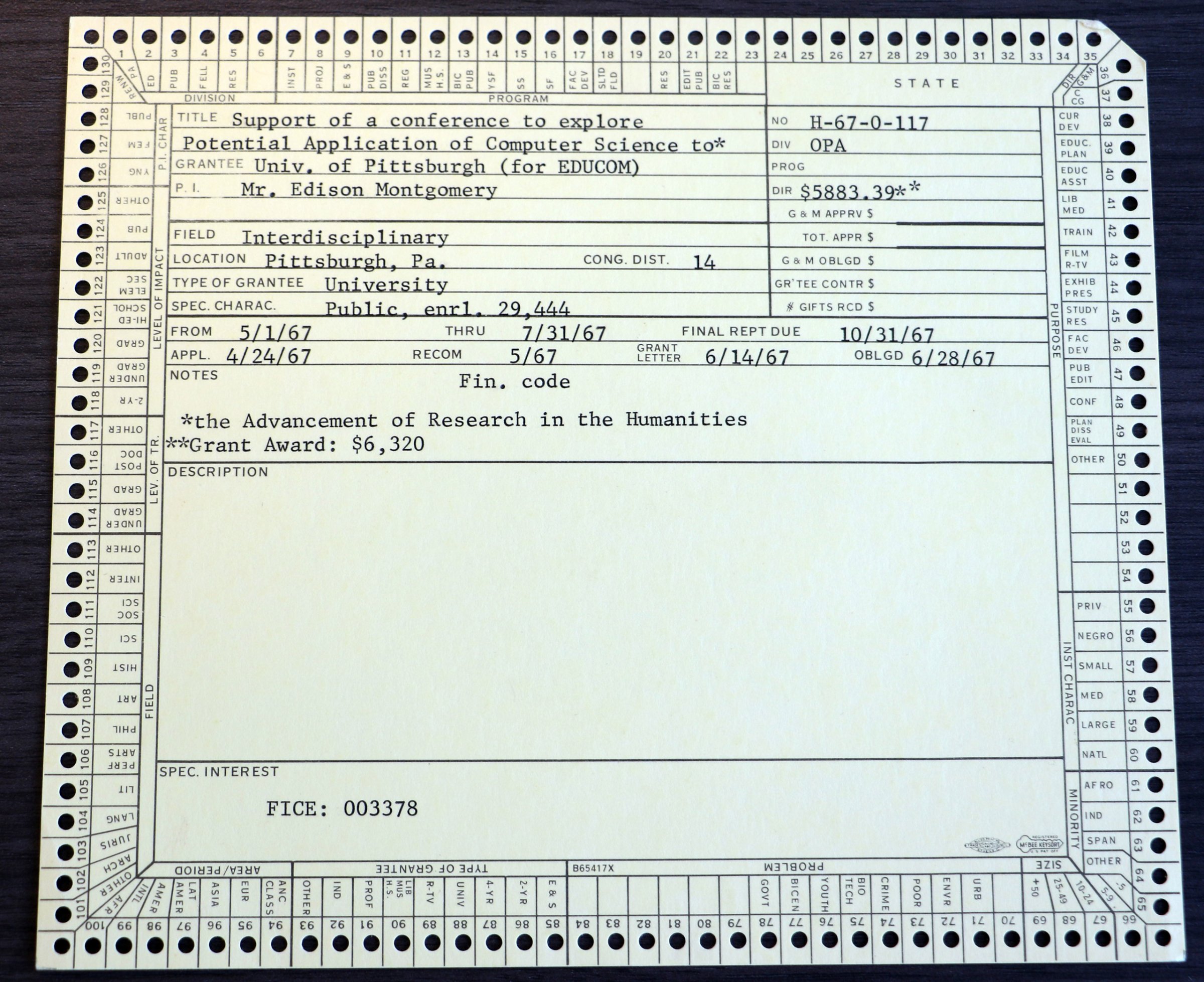
When the National Endowment for the Humanities (NEH) was established exactly 50 years ago—the act that created the agency was signed on Sept. 29, 1965—it was with the mission of supporting scholarship in the humanities.
Back then, it was a little bit harder than it is today to keep track of applications and grants. When people like Noam Chomsky, Marlon Brando and Elie Wiesel applied to the NEH for support for projects, the agency was still using a system of so-called “McBee cards” to manage the database. The series of holes around the cards’ edges corresponded to certain characteristics; the holes were punched into a different shape to mark whether that characteristic applied to the data on the card; then, using a needle that went through the holes, the cards could be automatically sorted to separate out those that did or did not meet the test.
Before the days of Excel and Google Docs, McBee cards did the trick—and, unlike their computerized descendants, the physical cards are fascinating to look at. Ahead of its anniversary, the NEH has digitized the McBee cards that were used to keep track of applications and grants during the first decades of the agency’s existence. Those records—the originals of a few of which can be seen above—date all the way back to the very first NEH grant ever, a 1966 gift of $14,000 to support a conference of papyrologists.
The rest of the database can be searched here.
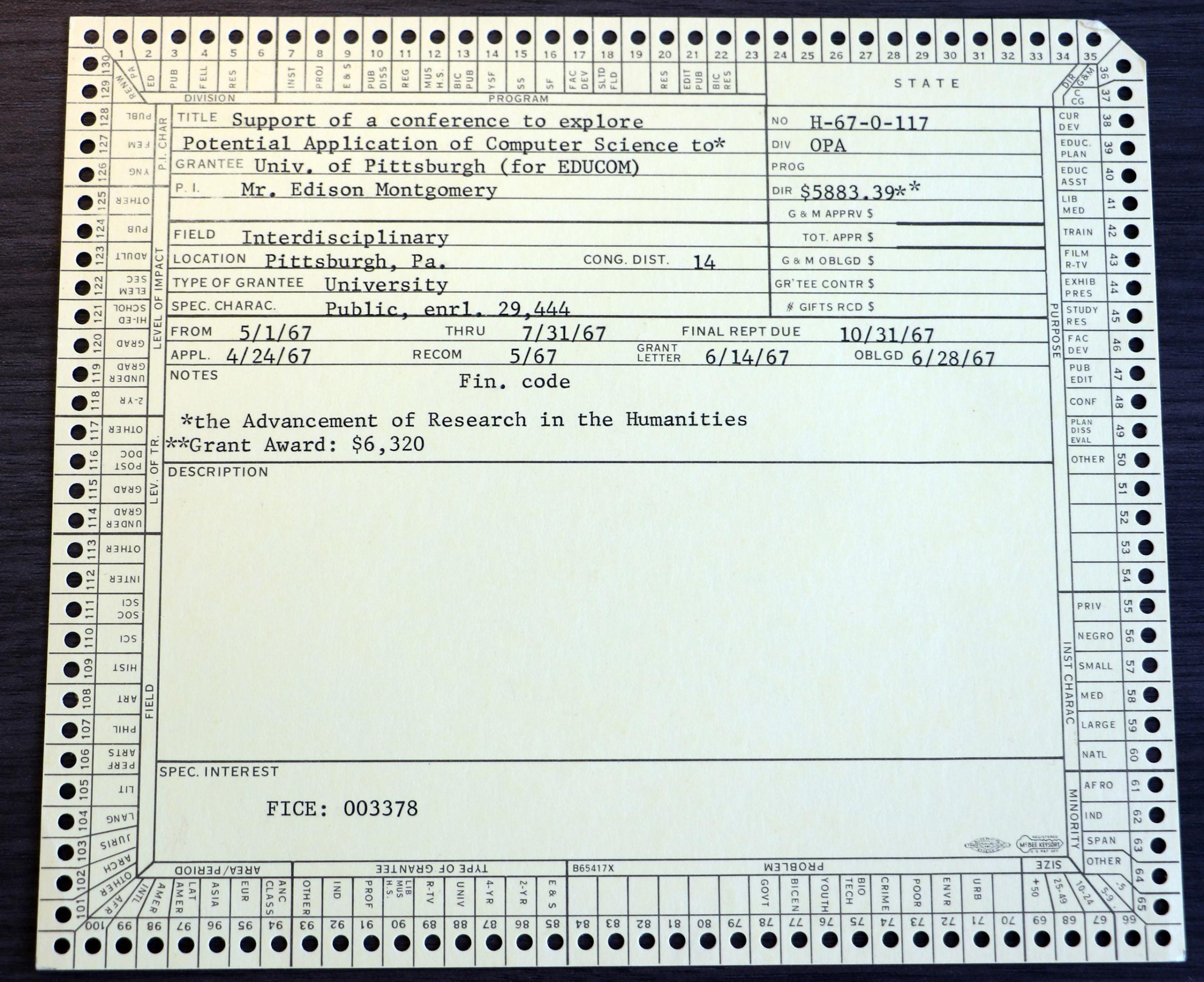
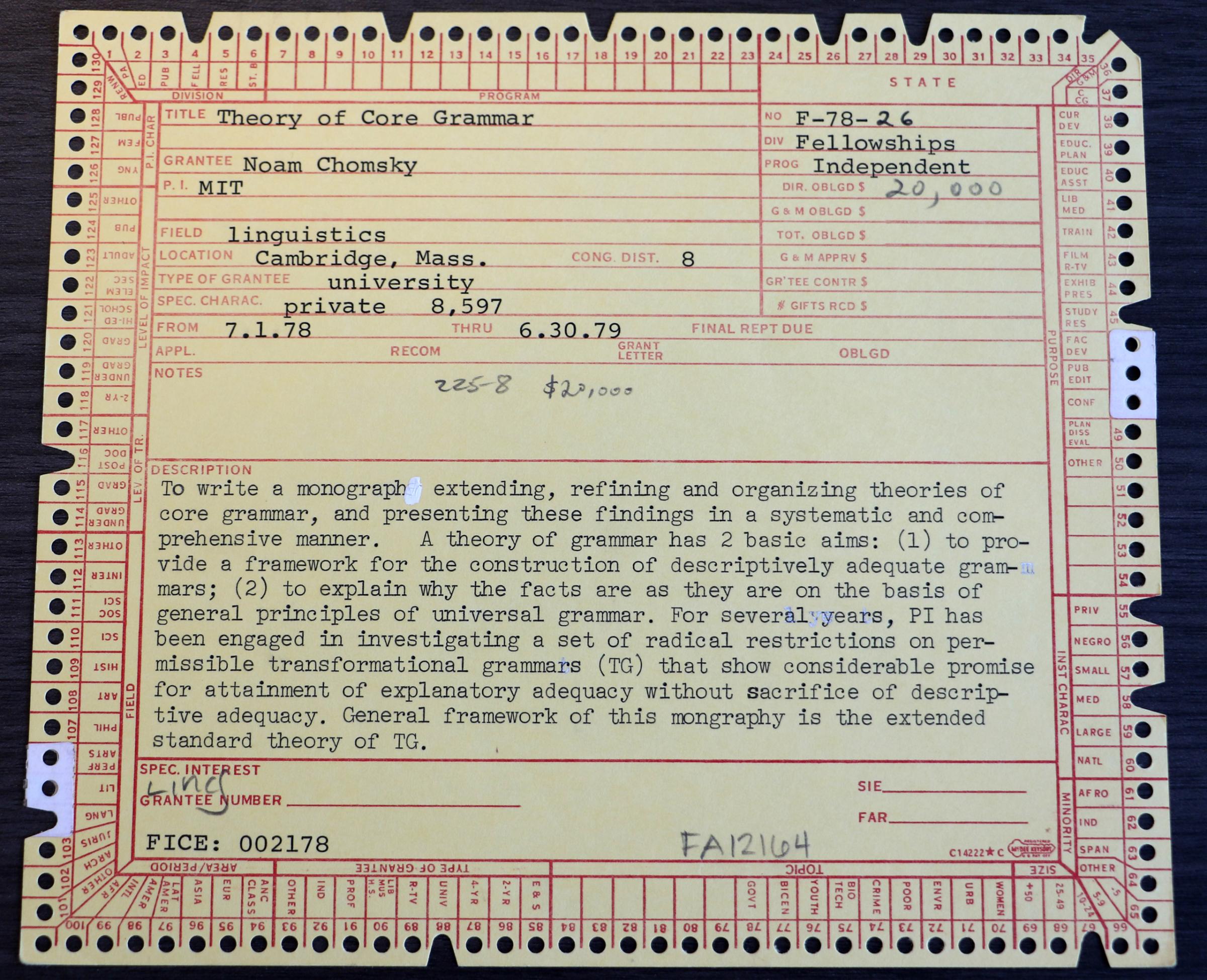
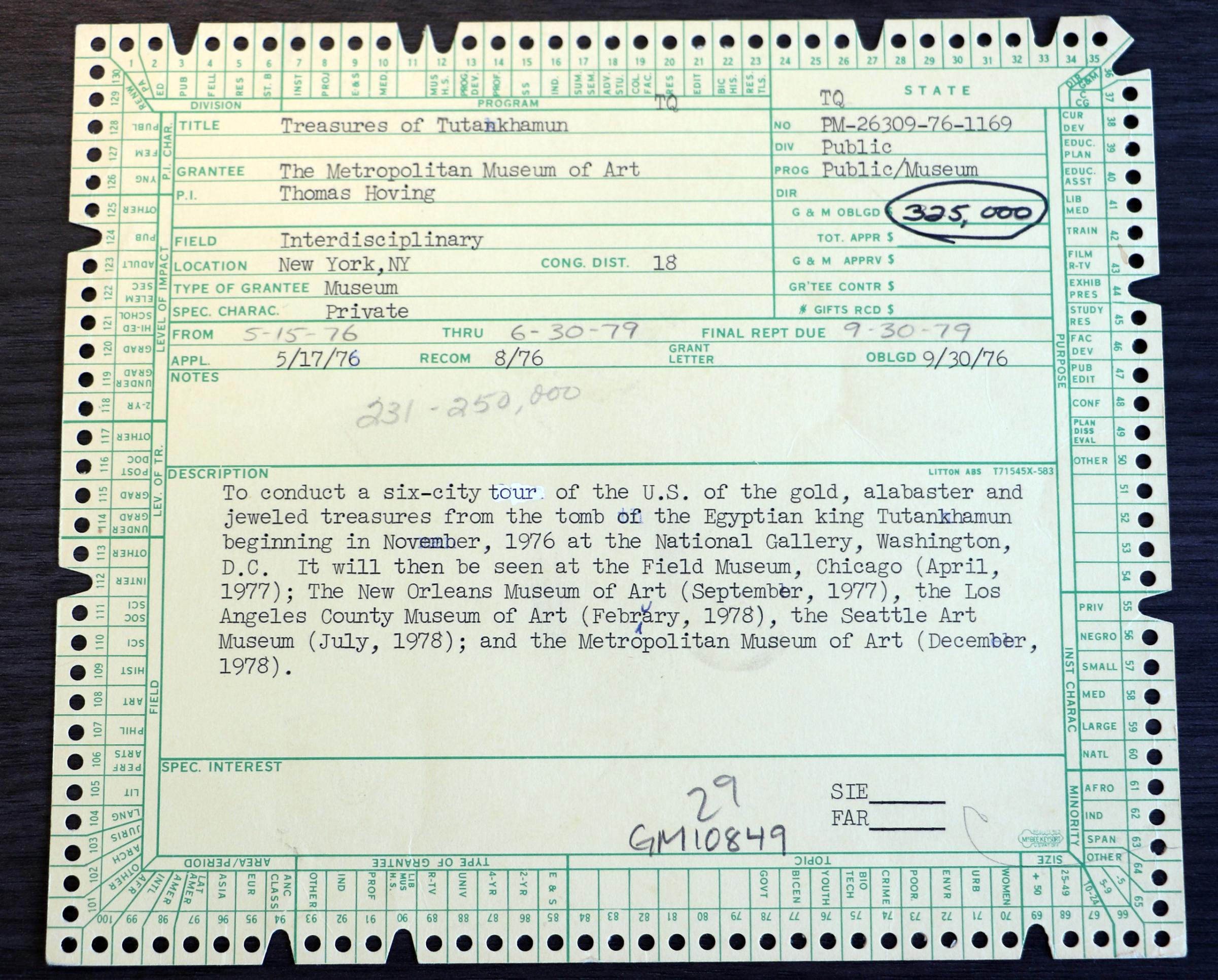
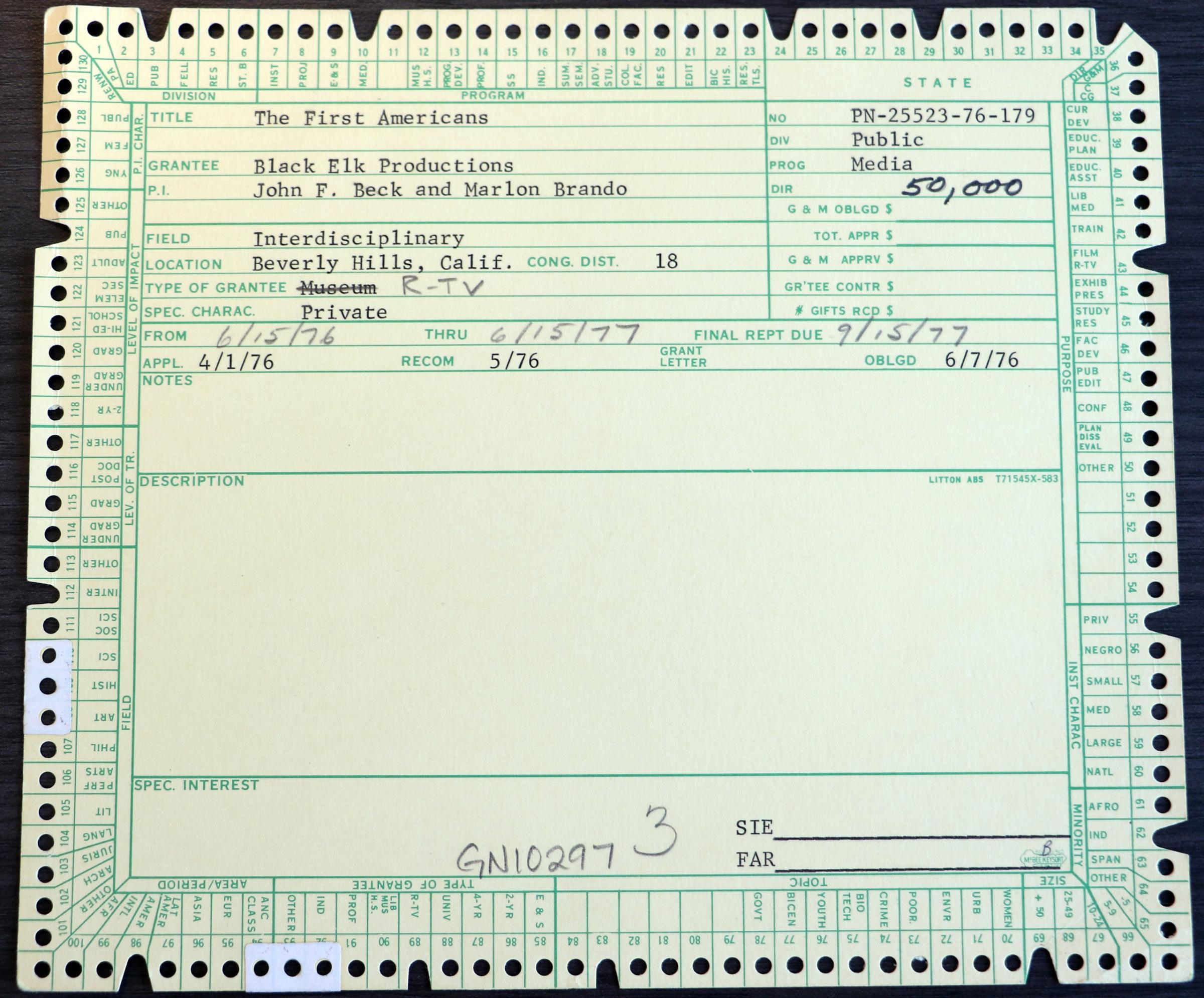
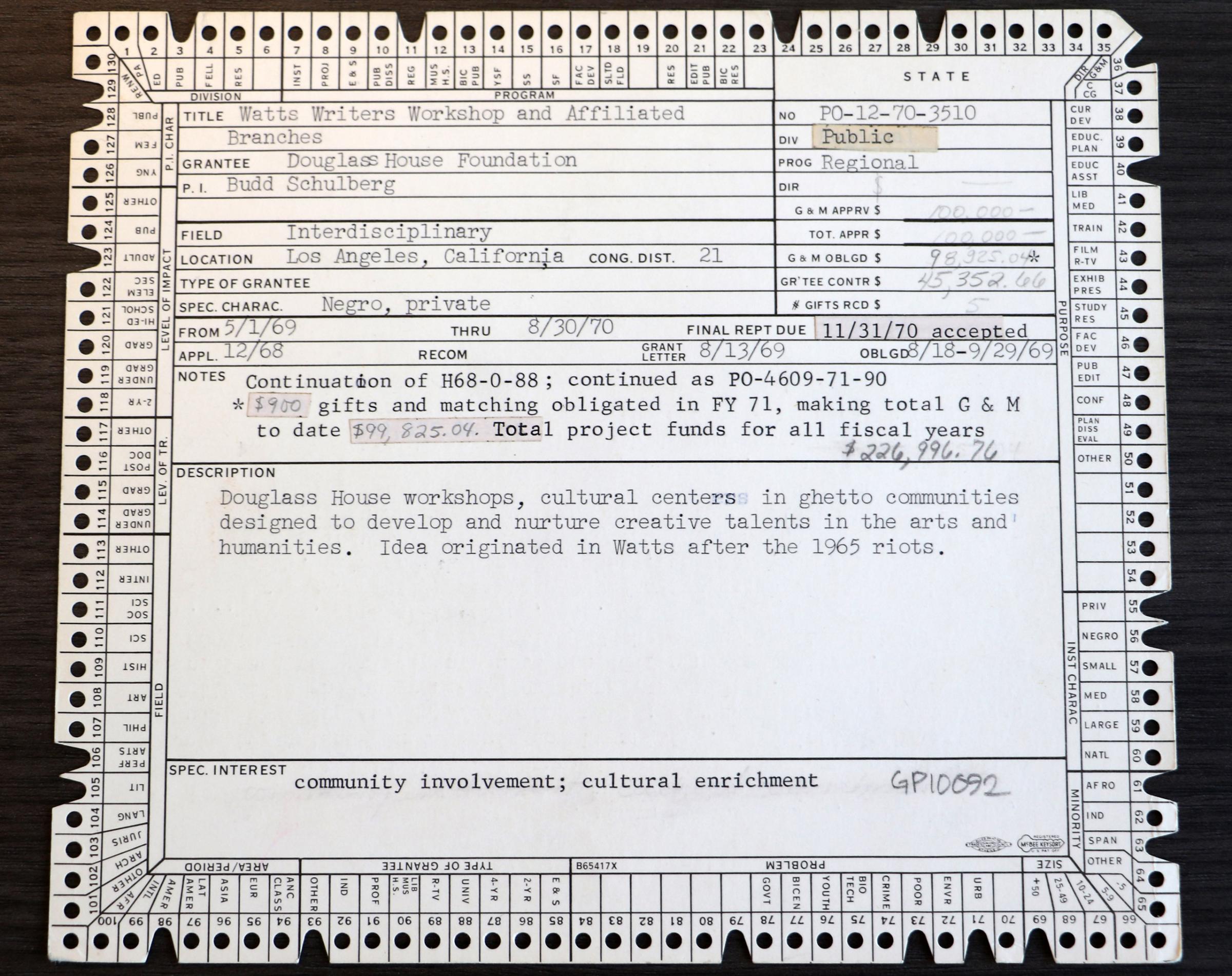
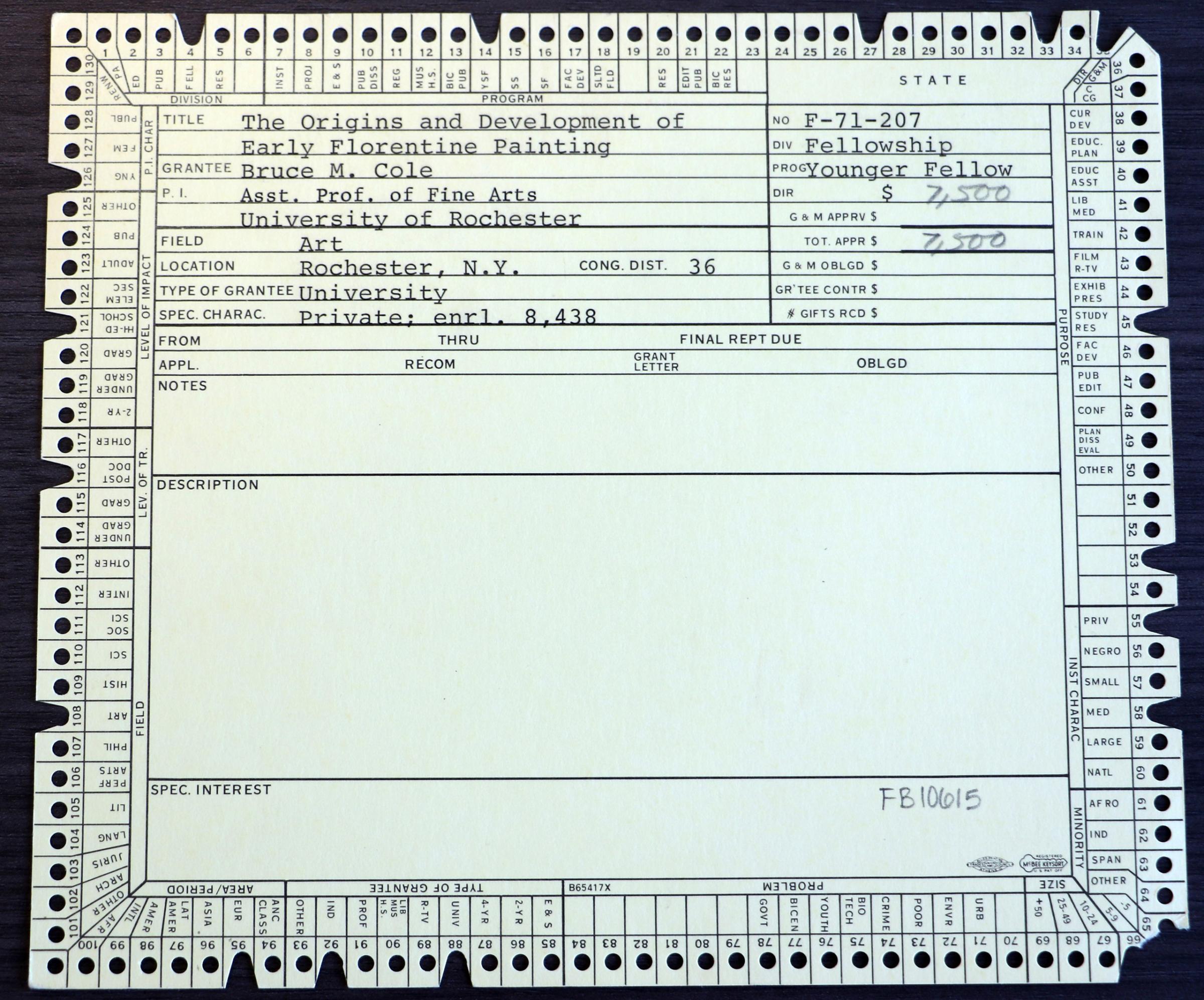
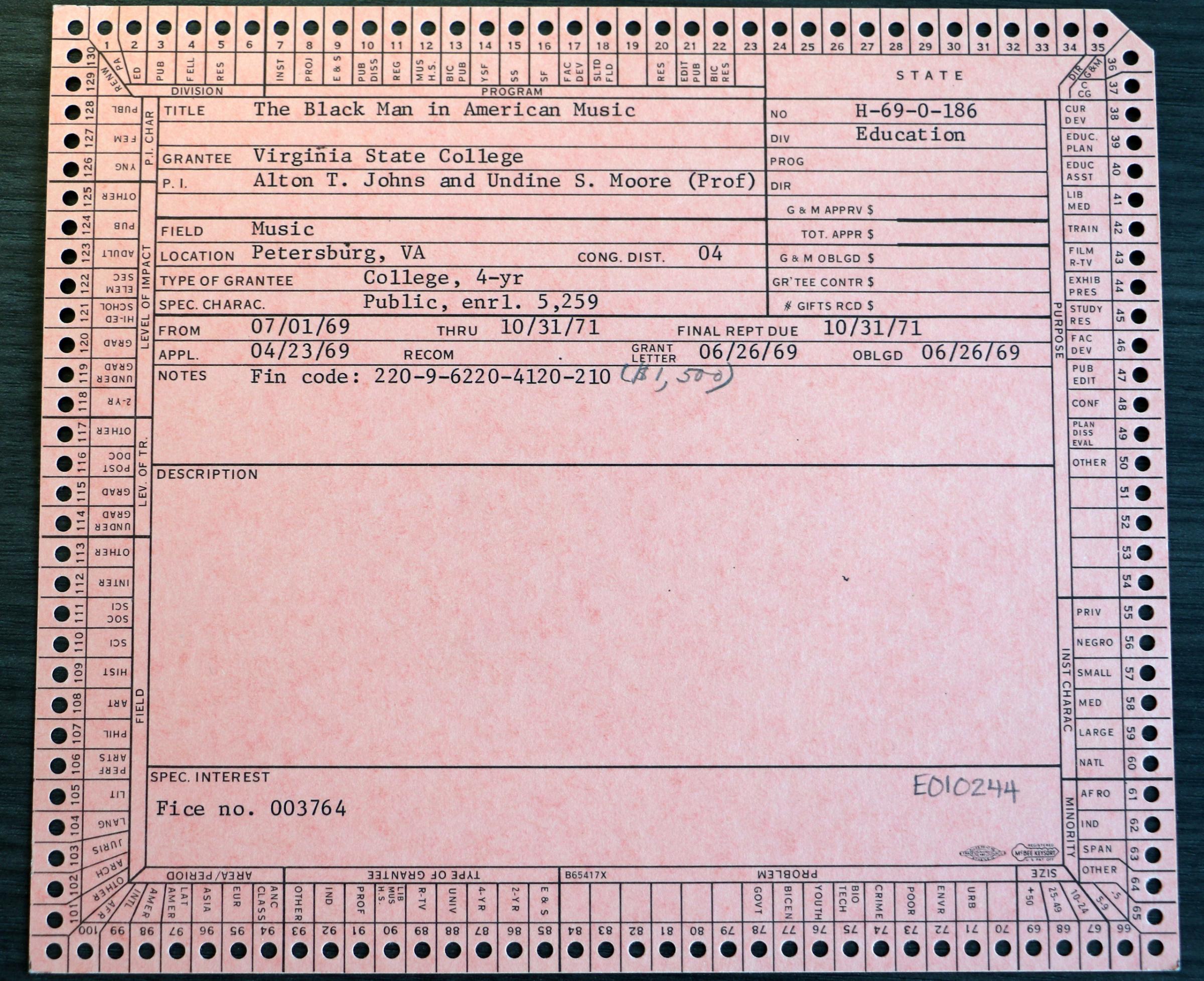
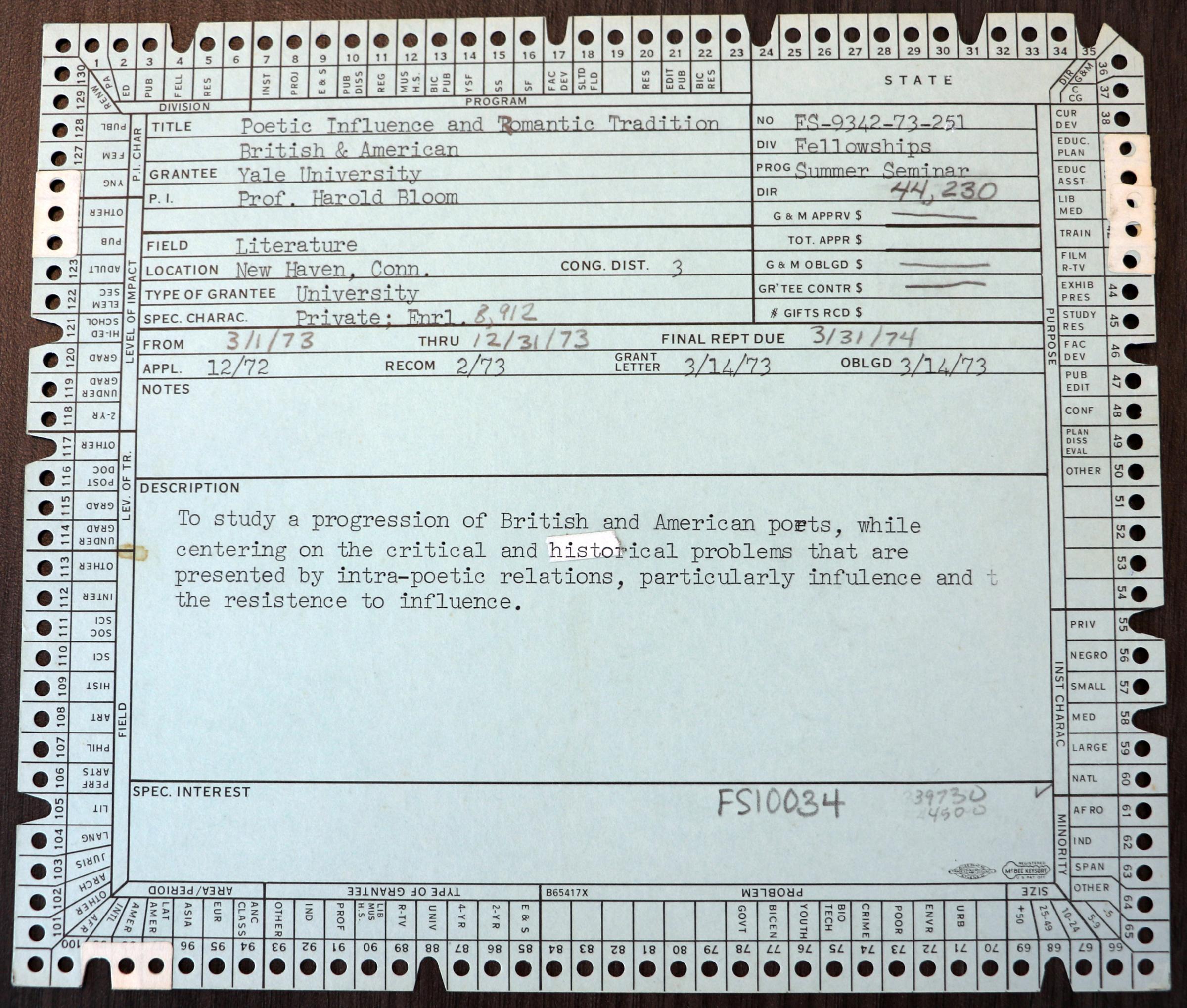
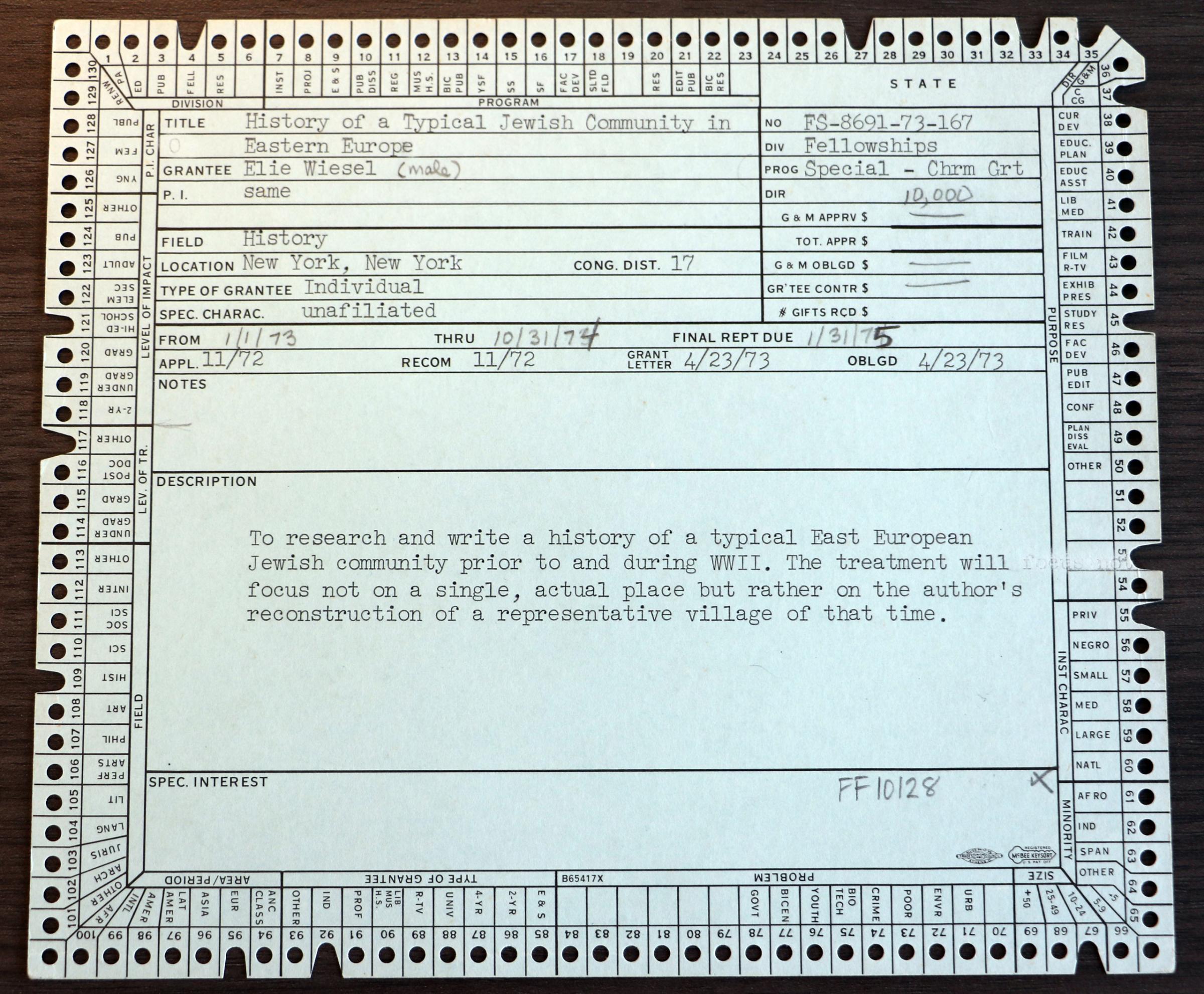
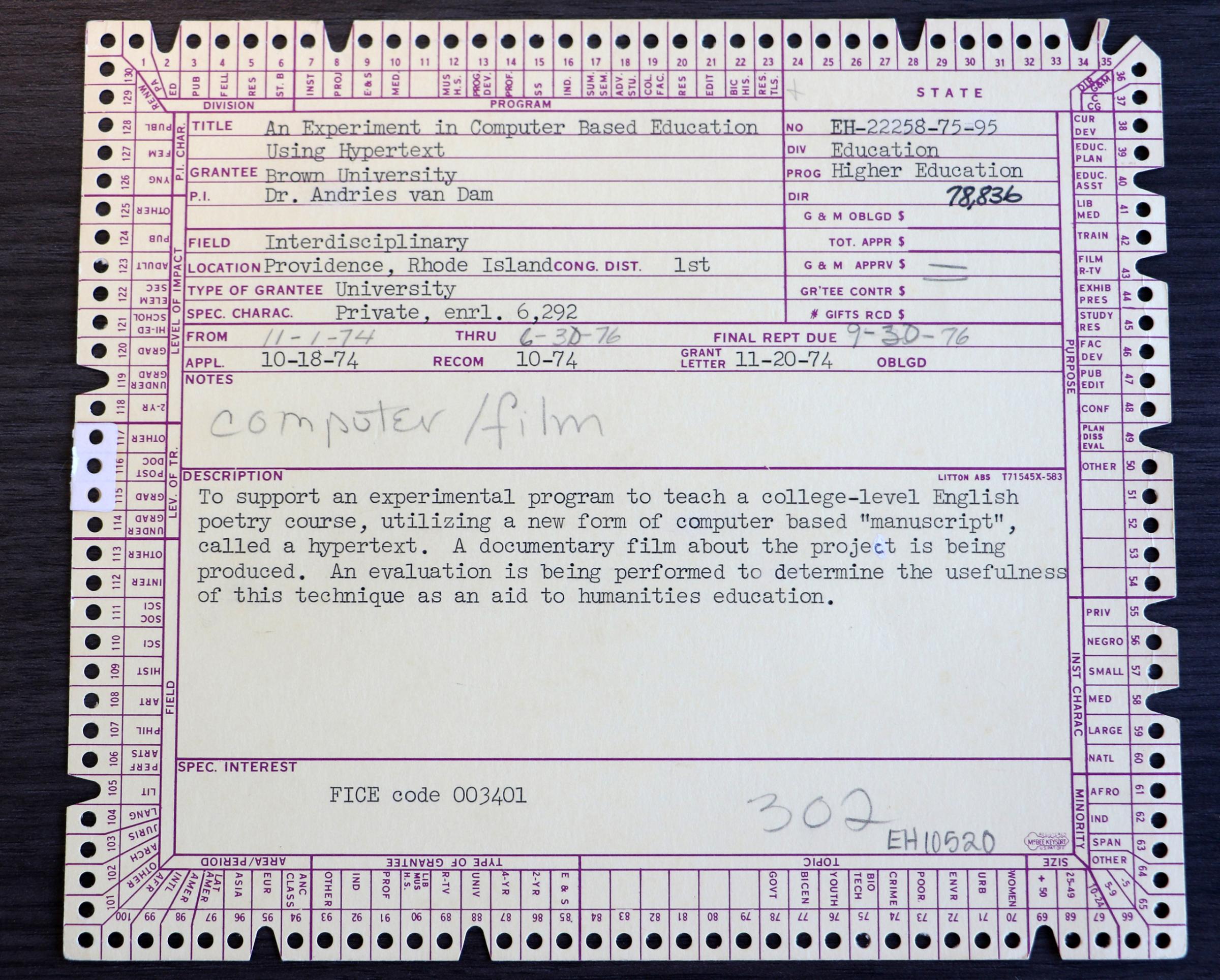
More Must-Reads from TIME
- Cybersecurity Experts Are Sounding the Alarm on DOGE
- Meet the 2025 Women of the Year
- The Harsh Truth About Disability Inclusion
- Why Do More Young Adults Have Cancer?
- Colman Domingo Leads With Radical Love
- How to Get Better at Doing Things Alone
- Michelle Zauner Stares Down the Darkness
Write to Lily Rothman at lily.rothman@time.com



